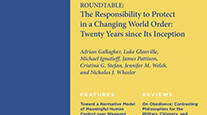This short clip on ethics asks: Is climate change a common public burden, or should individuals make their own choices? Globally do modernized countries have an obligation to developing countries?
Assume that climate change is real, but what about the costs? Correcting the problems is expensive.
There are two sets of costs. New costs come from new technologies and processes. Renewable energy requires subsidizes until economies of scale can bring down price. Buildings need to become green, but owners can't afford refitting. Transportation networks must become efficient and clean. Et cetera.
These are the social costs of moving to a new paradigm. Within societies, they involve difficult and necessary ethical choices regarding taxes, markets, winners, and losers.
A second set of costs relates to global fairness.
The developed world wants to retain a life style, which evolved under energy abundance and without climate constraints. America's great Eastern forests were cut for farmland. European and Japanese industrial plants covered the sky with smoke and soot. The dream was one car, then two, in every household.
Today Brazilians want land for crops. Indians want to industrialize. Chinese dream of cars. Zambians need food.
The developing world sees a dramatic disadvantage. They have to industrialize and modernize, and they have to absorb the new social costs, doubling demands.
Industrial countries provide some aid, but the third world wants more.
So, the new paradigm brings new costs to each society and costs regarding global fairness.
What do you think? In each society is climate change a common public burden, or should individuals make their own choices? Globally do modernized countries have an obligation? Who bears the cost of climate change?
By William Vocke

